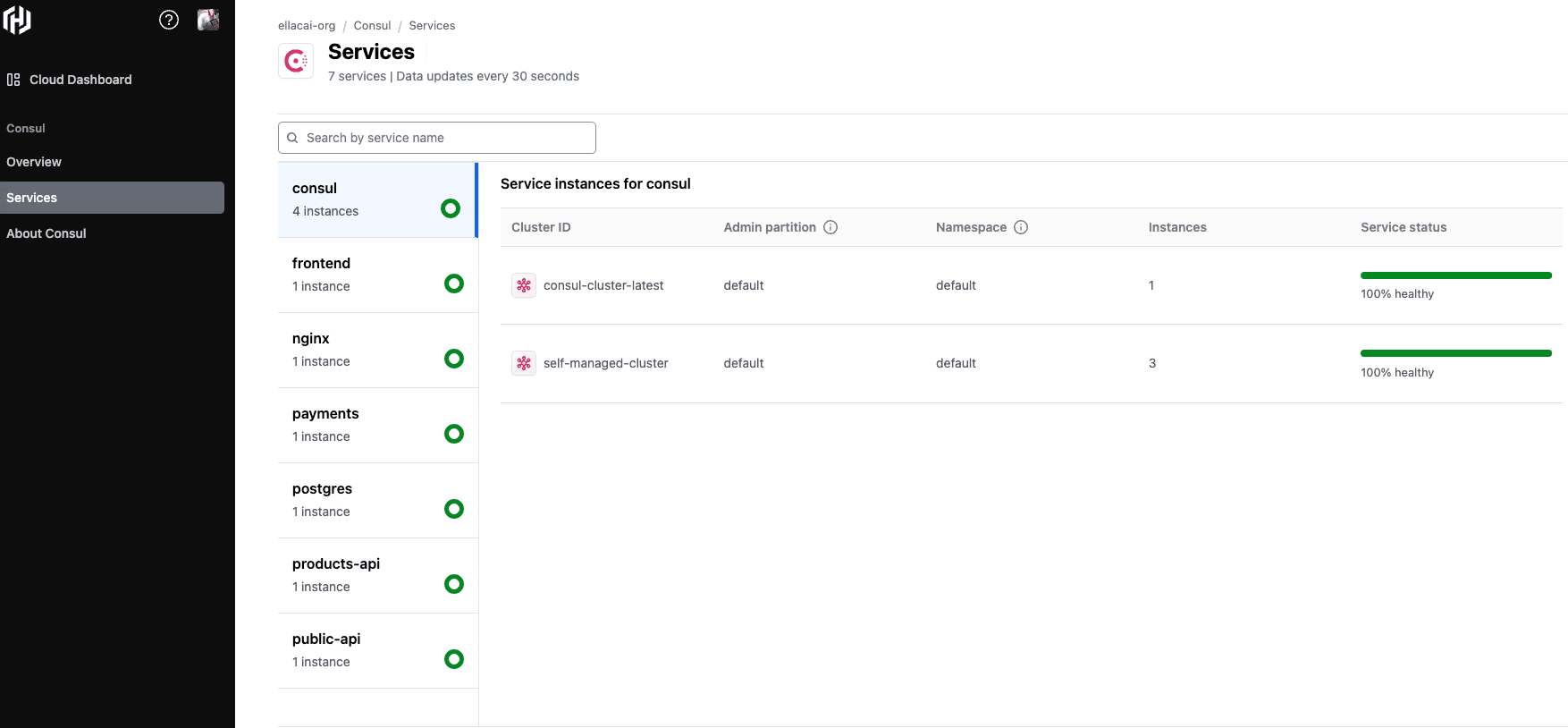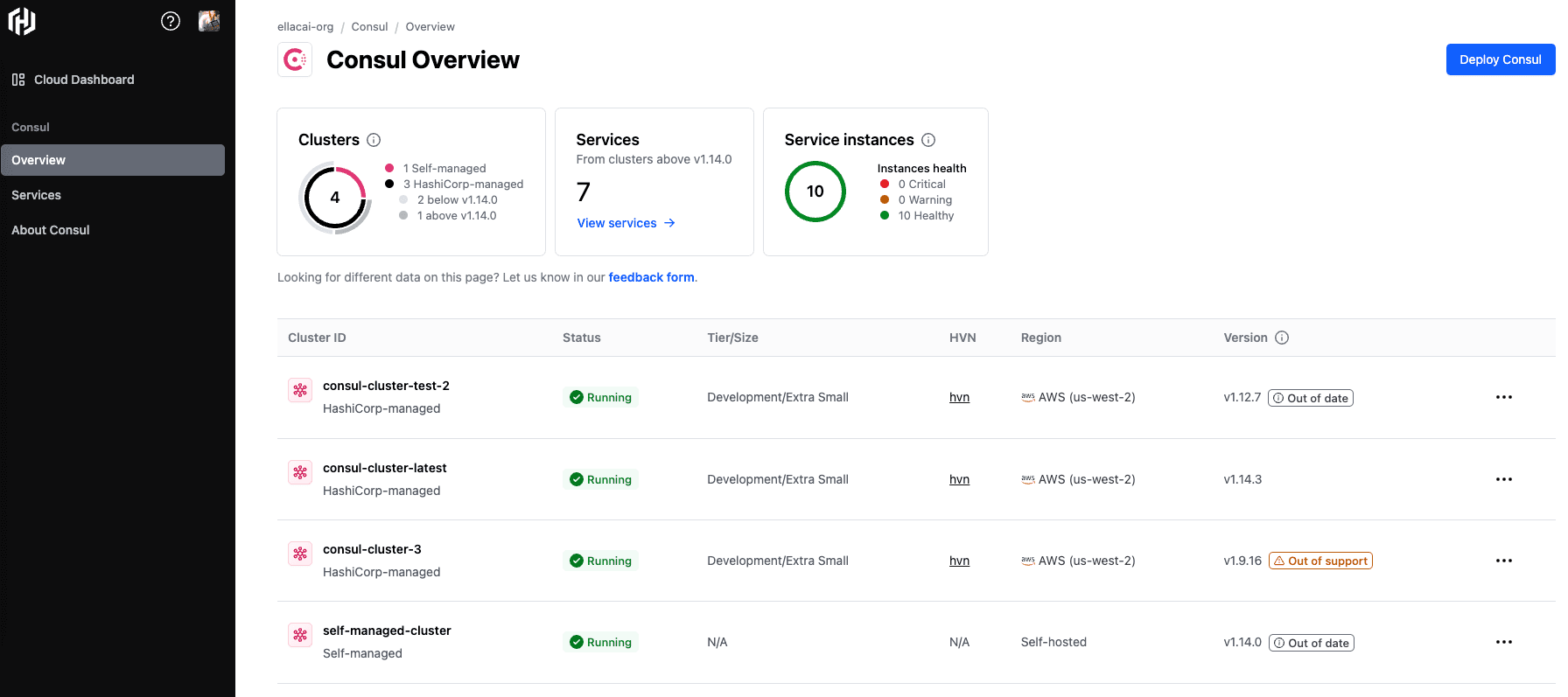Update: Effective November 2024, HashiCorp has deprecated HCP Consul Central (aka HCP Consul management plane) as part of an effort to streamline offerings and focus on delivering the best possible solutions to customers. This helps accelerate product development in other areas of Consul to meet customer demands. For information on the latest Consul features and capabilities, please go to our Consul product page
At HashiConf Global 2022, we introduced a technical preview for a new management plane service on the HashiCorp Cloud Platform (HCP) for Consul to provide global visibility and control for both self-managed and HashiCorp-managed Consul clusters. We are excited to announce that the HCP Consul management plane is now generally available.
Consul operators will see significant benefits from using HCP as a management plane:
- Get started quickly on your first use case for Kubernetes: Bootstrap new self-hosted Kubernetes clusters quickly with a secure Consul configuration. Bootstrapping is currently limited to new Kubernetes clusters.
- View health status of all Consul clusters: View self-managed and HashiCorp-managed cluster health in a single management plane.
- Discover all services registered with the Consul clusters: In a centralized view, see all discovered and registered services across self-managed and HashiCorp-managed clusters, and access the Consul UI securely from the management plane.
»Key features of the HCP Consul global management plane
General availability of the HCP Consul global management plane benefits everyone with an HCP account by delivering initial value in two key features: global service catalog search and version labels.
»Search option in global service catalog
With a global service catalog, users see a single view of all the discovered and registered services across all Consul clusters, regardless of where the servers are hosted. Application development teams can discover and reuse services developed by other teams, which furthers the common platform engineering goal of creating a paved path for dev teams.

»Version labels
With the new version labels, users can quickly determine whether their deployed Consul clusters are within the Consul version support policy and update their clusters if needed. For HashiCorp-managed clusters, the UI also provides a single-click option to update the clusters. Users can also use the HashiCorp Terraform workflow to update their clusters.

»Next steps
You can try the new HCP Consul management plane now at no cost and connect either your self-managed or HashiCorp-managed Consul clusters. In addition, if you want to try HCP Consul, HashiCorp offers a $50 credit so you can get up and running for free. For more information, please check out the HCP Consul documentation.
Call to action for beta clusters:
If you bootstrapped your self-managed Consul clusters with HCP during the beta period, please delete those clusters since the certificates issued to these clusters will expire soon.








